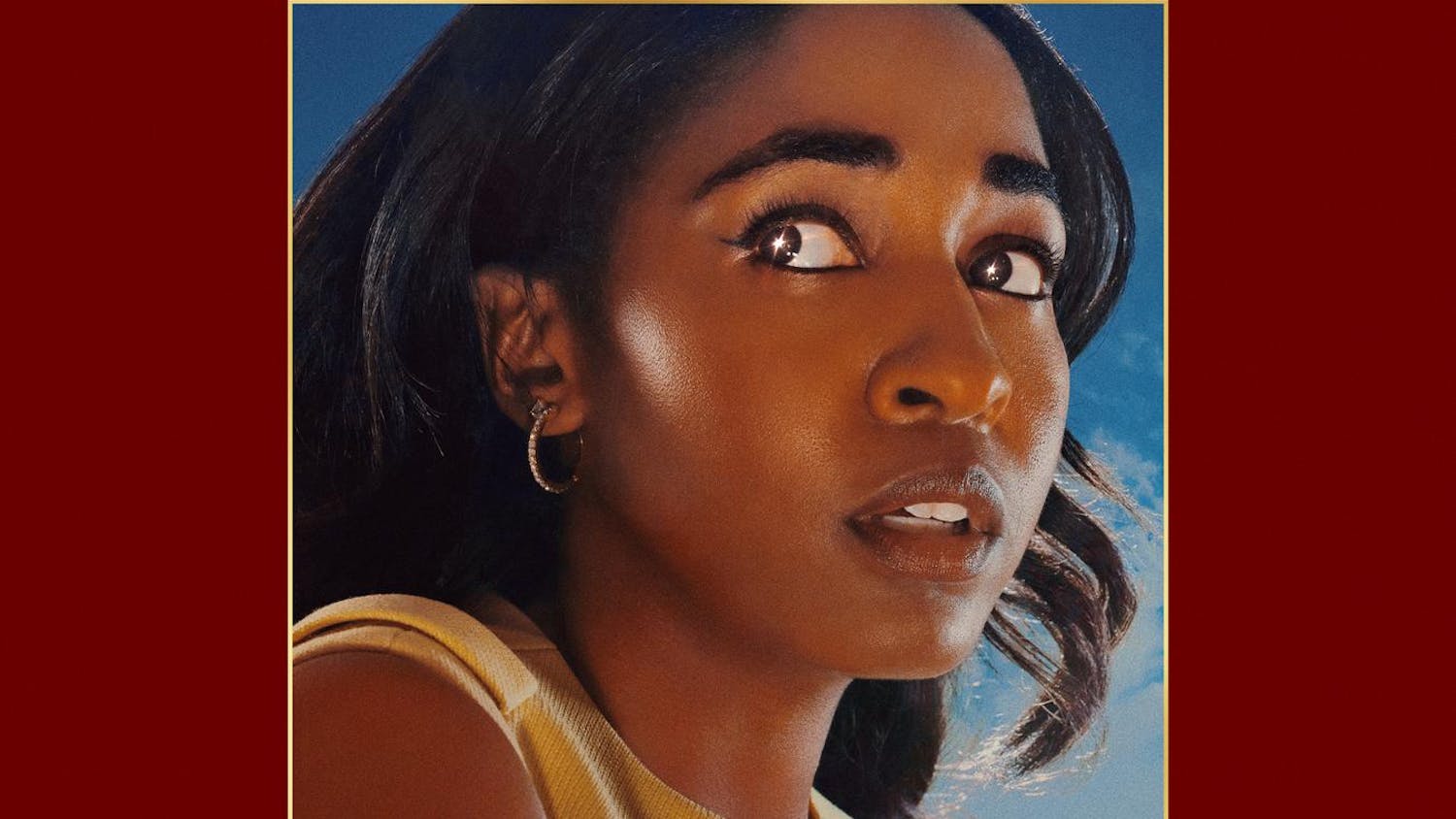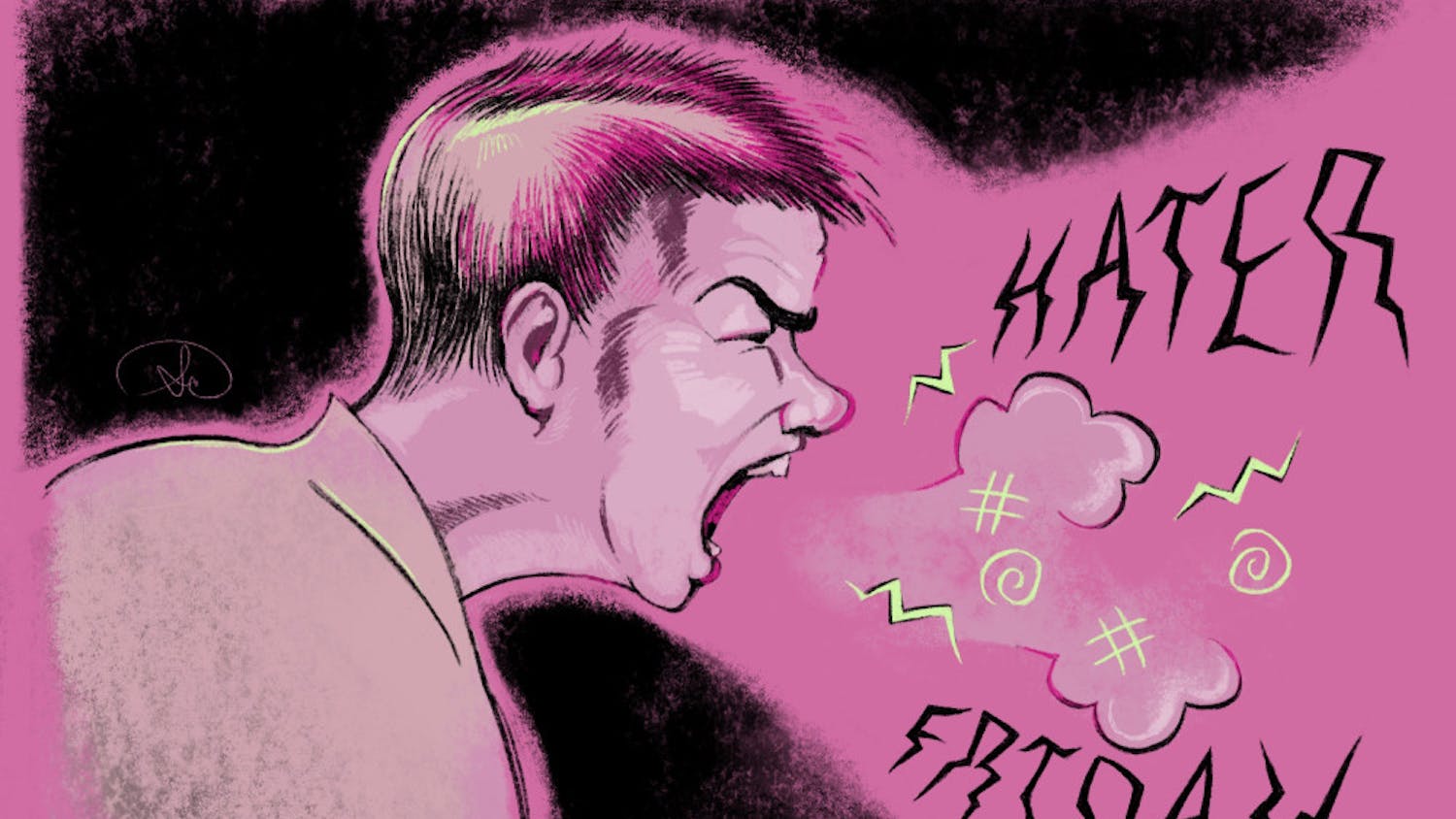
Taken from a book entitled SEX VARIANTS, the blackout poem above demonstrates the genius of Justin Torres’s 2023 novel Blackouts. With his poetry, he turns disgust into art and hatred into beauty. It’s a feat that only grows stronger when considered within the context of the story.
Honestly, I wasn’t familiar with Torres until I read excerpts from his debut novel We the Animals in my creative writing class, and, on March 6, without any other knowledge, I attended a reading of his in the Rhodes-Rawlings Auditorium. A likeable and charming man, Torres made a few introductory remarks before beginning the reading of his 2023 novel Blackouts. He skipped around a few sections of the novel — which was easy enough, considering the novel consists of a series of vignettes rather than a continuous narrative — and explained the history behind the book. While the book seemed interesting, it was the history that intrigued me more than anything.
I bought the book as soon as the reading ended and read it in a day. It was a quick read — with engaging pictures and poetry strewn throughout — and everything that Torres advertised. Brilliantly crafted, emotionally wrought and mind-bending, the charm of Blackouts is in its fragments, prose and rich history.
Almost 300 pages in length, the novel takes on a unique premise: Blackouts is not a narrative but a dialogue. It is a conversation between two friends: young yet jaded “Nene,” and Juan Gay, a man on his deathbed with a story to tell. Through these two characters, Torres weaves a tale of two distinct gay lives and their intersections with Puerto-Rican culture. Underpinning it all, however, is a true story: the story of Jan Gay.
Born Helen Reitman in 1902, Jan Gay was an openly lesbian journalist who conducted a series of interviews with gay men and women throughout the 1930s. Her research focused on the lives and homosexual experiences of her subjects, containing no vitriol or disgust, only curiosity. However, to have her research published, Gay needed to collaborate with medical professionals, which eventually led to the misrepresentation of her work by Dr. George W. Henry in his 1941 publication Sex Variants: A Study of Homosexual Patterns.
Actively silencing Gay’s voice in her research and weaving a narrative contrary to her intentions with the study, doctors like Henry were crucial in the erasure of LGBTQ+ stories to fit into a certain agenda. By blacking out lines of the text, Torres gets back at him — literally erasing the harmful narratives derived from Gay’s research in Sex Variants.
I find this to be a powerful move on Torres’s end. In the same way that he reclaims the beauty of the homosexual stories through his blackout poetry, he also reclaims his voice as a gay author in the writing of Blackouts. It seems almost like a catharsis.
Gay’s work is unique in many aspects but specifically with its genre-defiance within the umbrella of queer literature. Most mainstream queer novels seem to be of a similar format: a love story or coming-of-age piece or some sort of young adult drama. And it’s easy to see why literature like this is easy to consume; oftentimes, the queer literature promoted through avenues like BookTok contain queer characters, but lack much acknowledgement of queerness as a whole. Madeline Miller’s breakthrough 2011 novel The Song of Achilles, for example, portrays queerness in beauty and youth through her protagonists but does not encourage any further reflection into the risks or courage involved in a queer identity.
I like Blackouts because it is bold. I like it because it tries something different. And I like it because its message is clear.
Blackouts forces us to reread books like Sex Variants, urging us to acknowledge the beauty trapped beneath the homophobic language. Underneath it all is the hard work of a lesbian woman seeking truth in her community and 80 real, tangible queer stories. While queer literature has exponentially grown in popularity in the 2020s, it has always existed in bits and pieces. Under layers of homophobia, or in footnotes — hidden in plain sight. We must first see the queerness of the past in vignettes in order to understand the queerness of the present in its entirety.
Yaelin Hough is a freshman in the College of Arts & Sciences, she can be reached at yhough@cornellsun.com.











